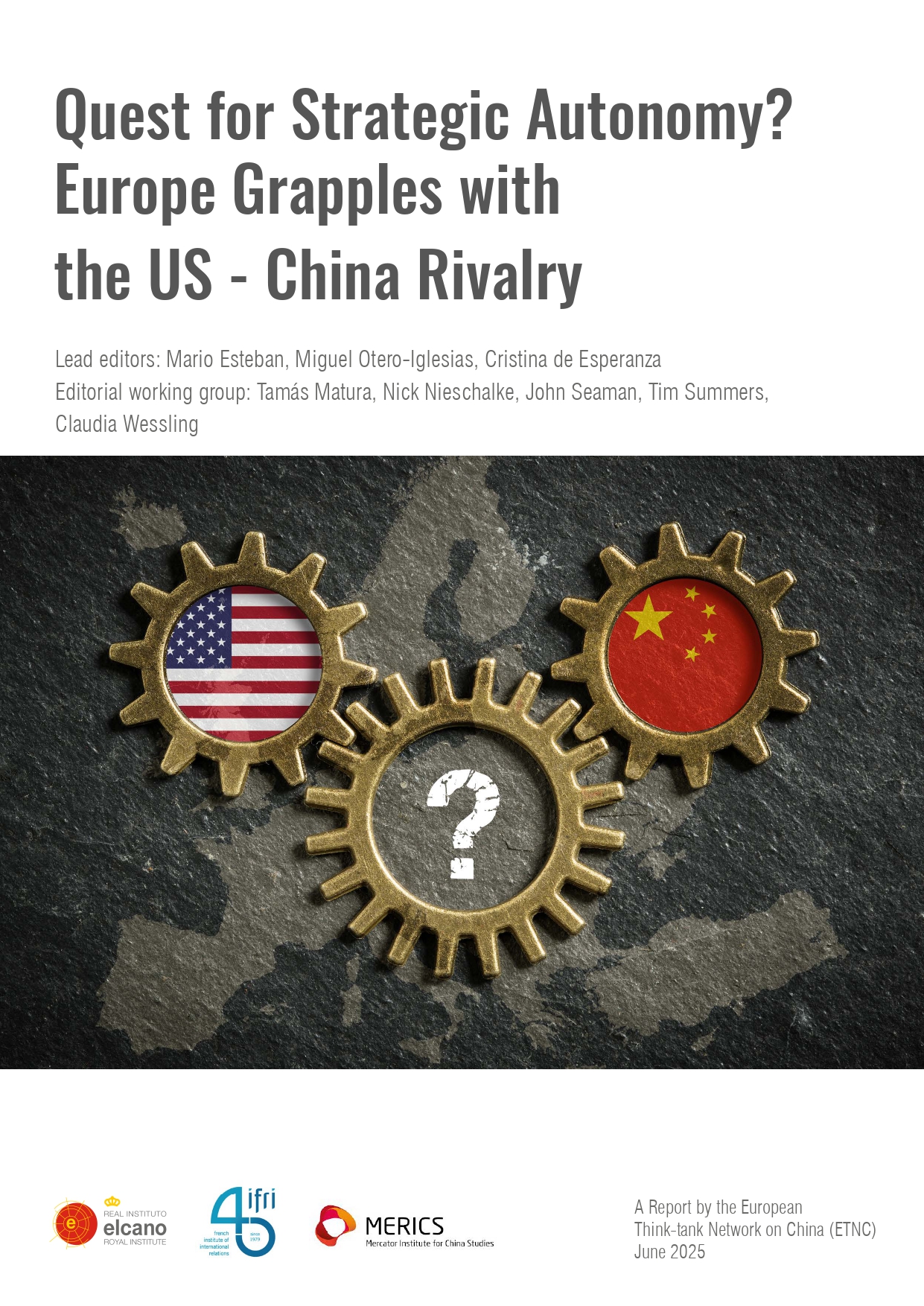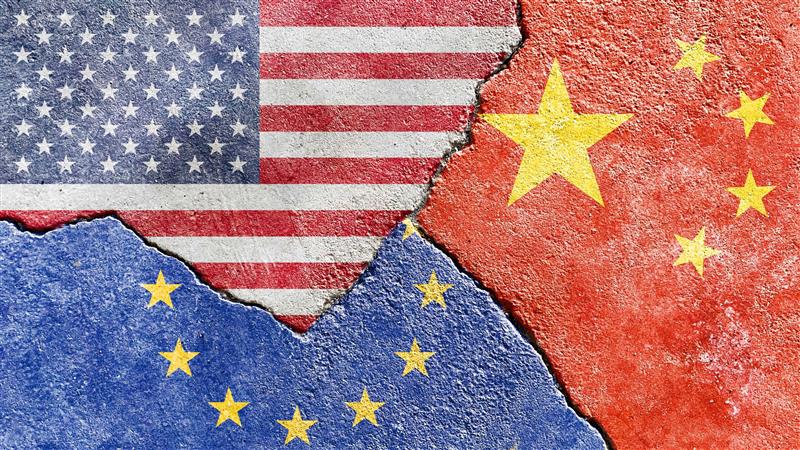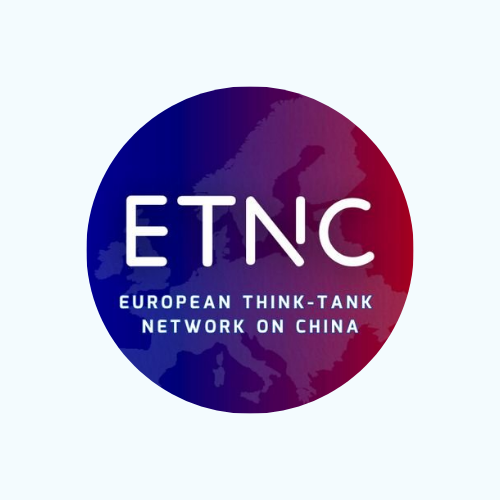Quest for Strategic Autonomy? Europe Grapples with the US - China Rivalry

Building on the 2020 European Think Tank Network on China (ETNC) report, which assessed Europe’s positioning amid the strategic rivalry between the United States and China, this edition re-examines the geopolitical landscape in light of the Covid-19 pandemic, Russia’s war in Ukraine and Donald Trump’s return to the White House. This report features 22 national chapters and one dedicated to the EU, analysing the evolution of Europe’s relations with Washington and Beijing, the range of approaches to dealing the US-China rivalry and how these are expected to evolve.

The 2025 ETNC report underscores how these developments have compelled Europe to reevaluate its strategic positioning. This new geopolitical context has broadened the debate on strategic autonomy across most countries surveyed. Although the pace and ambition of this shift differ, support for strategic autonomy is growing in most of these countries. At the heart of this discussion is the shared understanding that Europe must reduce its reliance on external powers in key areas such as security, economy and technology.
On the security front, defence cooperation with the US has deepened across most of the countries featured in this report, particularly in response to Russia’s invasion of Ukraine. However, the return of Donald Trump casts a shadow over this momentum, reviving concerns about the long-term prospects of transatlantic ties. At the same time, there is growing unease in European capitals about China’s impact on European security –fuelled in part by the perception that Beijing has enabled Russia’s war efforts in Ukraine–. Together, these developments are transforming the debate on European strategic autonomy into a more urgent and concrete policy agenda.
Economic security has also become a central focus, reflected in stricter national regulations and enhanced EU-level policy coordination. Nevertheless, national approaches to economic security –and the reassessment of dependencies on China and the US in particular– remain inconsistent, with some countries showing signs of scepticism or only limited engagement. The return of Trump to the White House has not been perceived uniformly across European capitals. Likewise, the ongoing reappraisal of economic vulnerabilities in relation to Beijing does not necessarily diminish the importance of China as a major market and partner in addressing global challenges. However, it adds to long-standing tensions over the fairness of trade with China, particularly as Europe’s trade deficit continues to widen. These concerns are now compounded by renewed US protectionism. Although the US remains a significant trade and investment partner, and recent years have seen general continuity in Europe’s economic relations with both the US and China, this apparent stability may be unsettled by the Trump Administration’s aggressive foreign and trade policy and the implementation of the EU’s emerging economic security agenda. The overall trend can therefore be summarised as increased distrust vis-à-vis the US, cautious and selective re-engagement with China, and a greater willingness to pursue strategic autonomy.
FRANCE: BETTING ON EUROPE WHILE MANAGING US-CHINA COMPETITION
Ifri’s John Seaman and Marc Julienne write that, as transatlantic relations enter a moment of profound crisis, France’s quest for a more autonomous, sovereign Europe now faces a moment of truth. For Paris, strategic autonomy was meant to be understood as a strategy to make Europe a more capable partner, better equipped to act on its own when necessary, but nevertheless firmly couched within a strong transatlantic partnership. As the bedrock of values and interests that have characterized the “West” is crumbling under Donald Trump’s leadership and the weight of American unilateral self-interest, France is not moving closer to Beijing, but rather seeing Washington move further away from French and European core interests. Indeed, Paris and Beijing have profound competing interests in the fields of trade and investment, not to mention antagonistic views of democracy and rules-based international order. Paris has looked to strengthen the EU as a global player while shifting towards deepening strategic partnerships with regional powers beyond the US-China dichotomy, such as Japan and India.
Discover this and all ETNC reports on the network's website: https://etnc.info/

Available in:
Themes and regions
Share
Download the full analysis
This page contains only a summary of our work. If you would like to have access to all the information from our research on the subject, you can download the full version in PDF format.
Quest for Strategic Autonomy? Europe Grapples with the US - China Rivalry
Related centers and programs
Discover our other research centers and programsFind out more
Discover all our analysesJapan’s Takaichi Landslide: A New Face of Power
Prime Minister Sanae Takaichi has turned her exceptional popularity into a historic political victory. The snap elections of February 8 delivered an overwhelming majority for the Liberal Democratic Party (LDP), driven by strong support from young voters, drawn to her iconoclastic and dynamic image, and from conservative voters reassured by her vision of national assertiveness. This popularity lays the foundation for an ambitious strategy on both the domestic and international fronts.
The U.S. Policy Toward Taiwan Beyond Donald Trump: Mapping the American Stakeholders of U.S.-Taiwan Relations
Donald Trump’s return to the White House reintroduced acute uncertainty into the security commitment of the United States (U.S.) to Taiwan. Unlike President Joe Biden, who repeatedly stated the determination to defend Taiwan, President Trump refrains from commenting on the hypothetical U.S. response in the context of a cross-Strait crisis.

China’s Strategy Toward Pacific Island countries: Countering Taiwan and Western Influence
Over the past decade, China has deployed a diplomatic strategy toward the Pacific Island Countries (PICs). This strategy pursues two main objectives: countering Taiwan's diplomatic influence in the region and countering the influence of liberal democracies in what Beijing refers to as the "Global South."

Opening up the G7 to South Korea to Address Contemporary Global Challenges
The G7’s global influence has diminished as powers like China reshape international governance through initiatives such as BRICS and the Shanghai Cooperation Organisation (SCO). With the G7 now representing just 10 per cent of the world’s population and 28 per cent of global GDP, its relevance is increasingly questioned.













